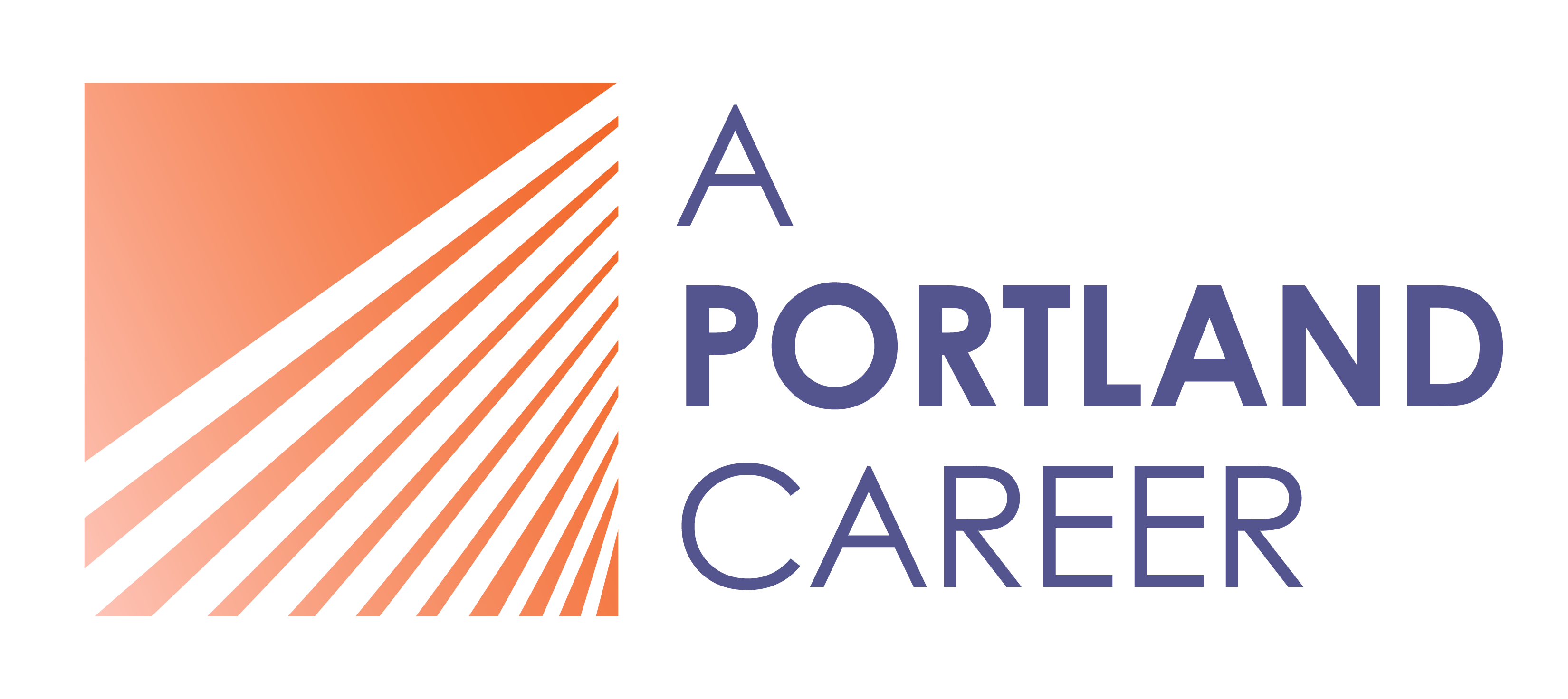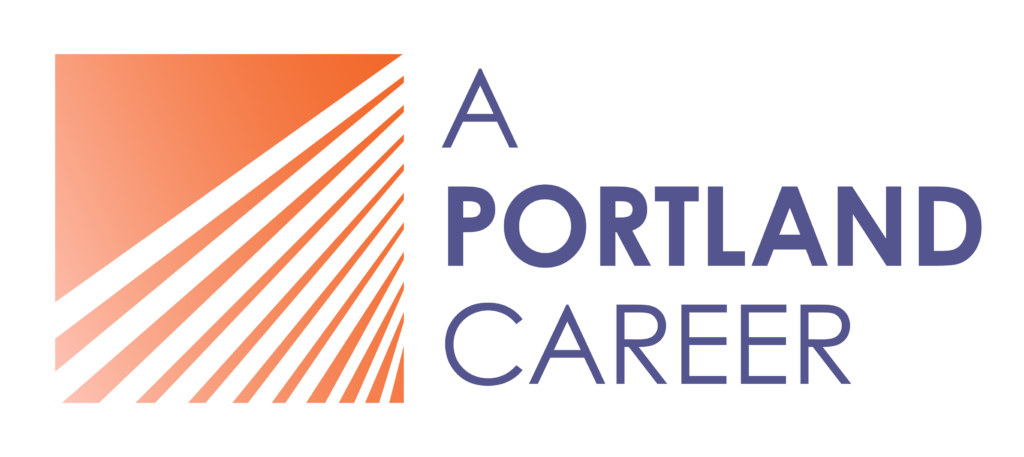Find out your MBTI personality type with our Myers-Briggs career assessment, and learn what it means (or doesn’t mean) about your career preferences!
Deciding on a career path can feel overwhelming, but with clear objectives, solid self-assessment, and a healthy trust of your gut instincts, you can do this thing!
How to Decide on a Career Path
By A Portland Career, and edited by Suzie Sherman and JD Duran
Too many career paths? We can help you find the right one

“The most difficult thing is the decision to act. The rest is merely tenacity. The fears are paper tigers. You can do anything you decide to do. You can act to change and control your life; and the procedure, the process is its own reward.”—Amelia Earhart
So you want to enter a new career! Whether you’re brand-new to the workforce, or making a transition into a new field, there are a lot of variables to nail down before you can focus on your specific career goals.
To help you arrive at this narrowing phase in your career exploration, we recommend you:
- Conduct a broad career brainstorm that includes research on the growth potential in different job fields, and helps you to develop your short list of career paths.
- Make sure you’ve taken the time to assess your career values and get a handle on your personality type, so you know the kinds of work environments where you’ll thrive.
- If you are an experienced career explorer, take an honest skills inventory to better evaluate the kinds of jobs you’d be good at and enjoy.
This research and self-reflection may produce a clear objective in a field with a healthy number of positions, or it may have you bouncing back and forth between several lines of work. In this article, we help you sift your career exploration down to the best two or three prospects for you, and give you strategies to break through indecision.
If you’re still feeling stuck honing in on the right career path for you, schedule a call with us at A Portland Career, and we’ll guide you through an effective career exploration that will lead to better results.
Home → Helpful Articles → Career Exploration → How to Decide on a Career Path
We think the most effective career exploration starts with knowing yourself, identifying your passions, and utilizing the best career search tools available. Here are some great posts to help you get started:
- Is It Time For A New Career Path?
- Your Career Exploration Brainstorm: Deepen your Search!
- Your Career Values Assessment
- The Big 5 Personality Traits: Get to Know Yourself to Find a Better Career Path
- Crack The Holland Code and Unlock Your Career Aspirations
- Taking Your Skills Inventory: Self-Assessment Time
- The 6 Best Career Exploration Websites to Narrow Down your Job Search
When you feel stuck, get in touch with us, and we’ll help you find a great career match.

Be specific, but flexible
Before you get to the actual job search, you need to narrow down your career options. Ideally, your objective is neither too narrow (“I aspire to be the Director of PR for Nike”) nor too broad (“I want to use my excellent communication skills in sustainability”). Below, we give you a range of example career objectives that are calibrated well: specific, but flexible. A potent job search goal naturally points you towards specific employers and job descriptions.
Patrick: I would enjoy a position in which I can use my love of trees and woodwork, and my marketing background, working for an organization committed to sustainability. My research reveals two leaders in this area – the Collins Foundation and the Certified Forest Products Council. My strategy is to send each organization my resume, and offer to volunteer or secure an entry level job, in order for them to observe my abilities at close range.
Susan: I am seeking a position to use my strong writing, analysis and policy skills and expertise gained through my master’s degree in international development. I will volunteer for one of Portland’s two organizations in the field. Since these are small organizations with limited opportunities, I will also target large humanitarian aid organizations like Mercy Corps.
June: I am looking for an entry level job in funding development as a step towards becoming a development director. I hope to use my strong writing and team building skills in an organization that shares my commitment to equity for marginalized populations.
Matthew: I am planning to apply my MBA and ten years in supply chain management to one of Portland’s leading progressive retail companies with a global reach.
Action item: Try writing a paragraph like this for each one of the two to four careers on your short list.

Compromise, or double down on your passion?
You may reach a point when one or two career options beckon strongly, only to find that they are both extremely competitive. It is not surprising that many of the most rewarding jobs in the arts, environment, community organizations, and prestigious global brands have more qualified people than projected openings in the labor market. Should you really make a commitment to your passion to become an art therapist, for example, if you discover in your research that that career choice has a poor prognosis for job opportunities or demand?
If you truly have a burning passion, it may drive you to outdistance the odds. Offset discouraging news by reading autobiographies and seeing movies of your career heroes, who “followed their bliss.” Better yet, get active on LinkedIn and set up informational interviews with individuals in this type of work to get their read on the current and future outlook. Learn from professionals who competed successfully for coveted positions how they honed the right skill set and developed strategic connections.
The following strategies will help you integrate this dispiriting prediction of negative job outlook into your unique situation. You may decide to make some realistic compromises and feel very peaceful and “adult-like” in accepting a different career than you ideally wanted. Or, you may make more aggressive plans to compete well in a crowded field.
- You could, for example, adapt your career plan to include not only an unpaid internship, but also a smaller-scale stint volunteering or shadowing at another organization. Working on two fronts can expand your professional network faster and get you closer to your dream job.
- If your family situation and resources allow, you can consider relocating to a region with greater opportunity. (You can always move back to Portland later. It will still be here.) Alternatively, remote work opportunities have grown exponentially in the last two years. Can you work in your target field via webinars and Zoom meetings?
- Others make a financial plan that takes into account a longer transitional period. Your own tolerance for risk and your financial situation will be considerable factors. Is there someone in your life who can pick up more of the financial burden during your transition, like a partner with a solid income? If so, you can plan a longer transition and training period than if you are a single parent with no savings who holds the same goal.
- If your financial situation is limited, and you can’t relocate, are there low-cost ways to get the training and experience you need, like online tutorials, community college classes or training programs? Can you take an online course to get a certification? Can you stay in your current job short-term while you continue to research your options to make the career change you want to?
The virtue of identifying three or four career areas to research is that it provides a fallback position if one turns out to be unrealistic for you at this time. If the odds are too discouraging, you may need to give yourself a day or even a week to grieve the lost dream (for the time being) before you begin to gather information about another option.
As an outcome of this phase, try to have one clear career objective and a possible back-up plan. Patrick’s objective was to work for an organization that supports certified forest products. His back-up objective was to work for any lumber company that sells these products to learn more about increasing sustainability in the lumber business.

Narrowing your career exploration
Some enthusiastic folks complete their research and find that they are still interested in three or four career directions. For example, one client continued to be interested in housing, international travel, recycling and public relations. It may be difficult, but necessary, to approach your creative-divergent spirit with a strong, authoritative tone and say:
“Look, kid, two target career paths are enough. Let’s stick with the right career for right now.”
Otherwise, your networking and search will become too fragmented, too time-consuming, and too overwhelming.
Trust your research AND your gut
When decision-making proves too difficult, try to pay attention to your physical reactions to your options. Researchers have found that “gut feelings,” made up of somatic markers like goosebumps, or that butterfly-feeling in your stomach, give you valuable information about an impending decision.
A series of studies on angel investors found that those who paid attention to both analytics and their physical responses in decision-making enjoyed highly profitable returns on investment more often than those who relied on analytics or gut feeling alone. Tune in to your body’s responses to ideas: when you feel elation or dread, make a note of it, and consider it in your final analysis.
Collect physical evidence
For a more active approach, try collecting job postings over the course of a month in the four or five career fields you are still considering. It’s important that the job postings have a physical presence. Post them on a bulletin board, or keep them in a binder, and group them under each career area.
See which job descriptions speak to you more loudly and clearly: spend time reviewing and highlighting the postings to see which jobs require tasks and responsibilities that call to you. Count up the jobs in each career area that generated the most excitement for you. Maybe there’s a clear winner or two!
Let serendipity decide
We stand by our method of conducting a broad, imaginative career brainstorm and then honing it down to a short list of career options, informed by self-assessment, career tests, and job market research.
That said…we also believe in keeping your eyes and your heart open to the unexpected. One of our clients, whose focus was on business writing, said: an opportunity in PR…
“just splashed down on me. Hallelujah!”
This only happens when we are willing, from time to time, to give something new a try, and invite the unknown to come and play. Even if your career decision is based on sound research, making a final commitment to a clear career objective can be scary. Creative people often yearn to keep all options open. At this critical choice point, religious people pray for discernment of God’s will; spiritual people meditate so that they can hear the clear, calm voice from within; secular folks just close their eyes and take a giant leap.
Get more structured guidance
You don’t have to do all this alone. A Portland Career structures an effective and meaningful career exploration process to help you move from ambiguity to clarity. Here’s some of what you can expect from our six-session Career Decision Coaching package:
- Pre-Session: Respond to easy written prompts related to your background and interests
- Session 1: Semi-structured interview based on what you shared about your background, history, interests and passions
- Session 2: Personality assessment and interpretation with the Five Factor model, and a MBTI variant
- Session 3: Skills and strengths assessment, interpretation, and modeling your career decision criteria
- Session 4: Pathway exploration and evaluation
- Session 5: Continued evaluation and guidance through networking, making contacts, and informational interviewing
- Session 6: Pathway planning and continued networking
Final thoughts on how to decide on a career path
Making a decision to find the right career path can feel so fraught with uncertainty, especially when our work experiences and potential income are such big, important parts of our lives. It’s hard to know what to do to make it happen. But with a robust career brainstorm and self-assessment of your career values, skills, and goals, you will naturally begin to narrow in on a clear career objective. Whether this means returning to school, entering a training program, or interning for the right company, you’ll soon be ready for the next phase of your career journey: landing a job.
Remember, if you’re having trouble narrowing down your options, expert career advice is available from the career coaches at A Portland Career. Set up a consultation and let’s get to work!
Key takeaways
- Career exploration should naturally funnel down from a big, imaginative brainstorm to a more focused, strategic search.
- Write a specific, but flexible, objective for each of the two to four career paths that are calling you the loudest. Target specific jobs and companies, but stay open to the opportunities with the most potential to get you where you want to go next.
- Prepare for the possibility that your dream job might not be the most viable option right now. Plan contingencies: can you relocate, get more training, or make a longer term plan to meet your goals?
- Narrow your career goals to help you to conduct a more effective job search when you’re ready to throw your hat in the ring. Do your career self-assessment and job market research, compile job postings, and notice what kinds of jobs stand out to you.
- Make sure to pay attention to your gut feelings and inner sources of inspiration, too!
Related articles you might be interested in:
The 6 Best Career Exploration Websites to Narrow Down your Job Search
Discover the 6 Best Career Exploration Websites to find job titles, requirements, salary range, and market outlook for the most promising career paths!
Getting Clear on Your Career Path: Discerning Your Interests and Passions
Decide whether you should pursue a practical career or a passionate calling with our career interest assessment.
Crack The Holland Code and Unlock Your Career Aspirations
The Holland Code is arguably the most practical personality typology for job search. Crack the Code, and unlock your best career path matches.





